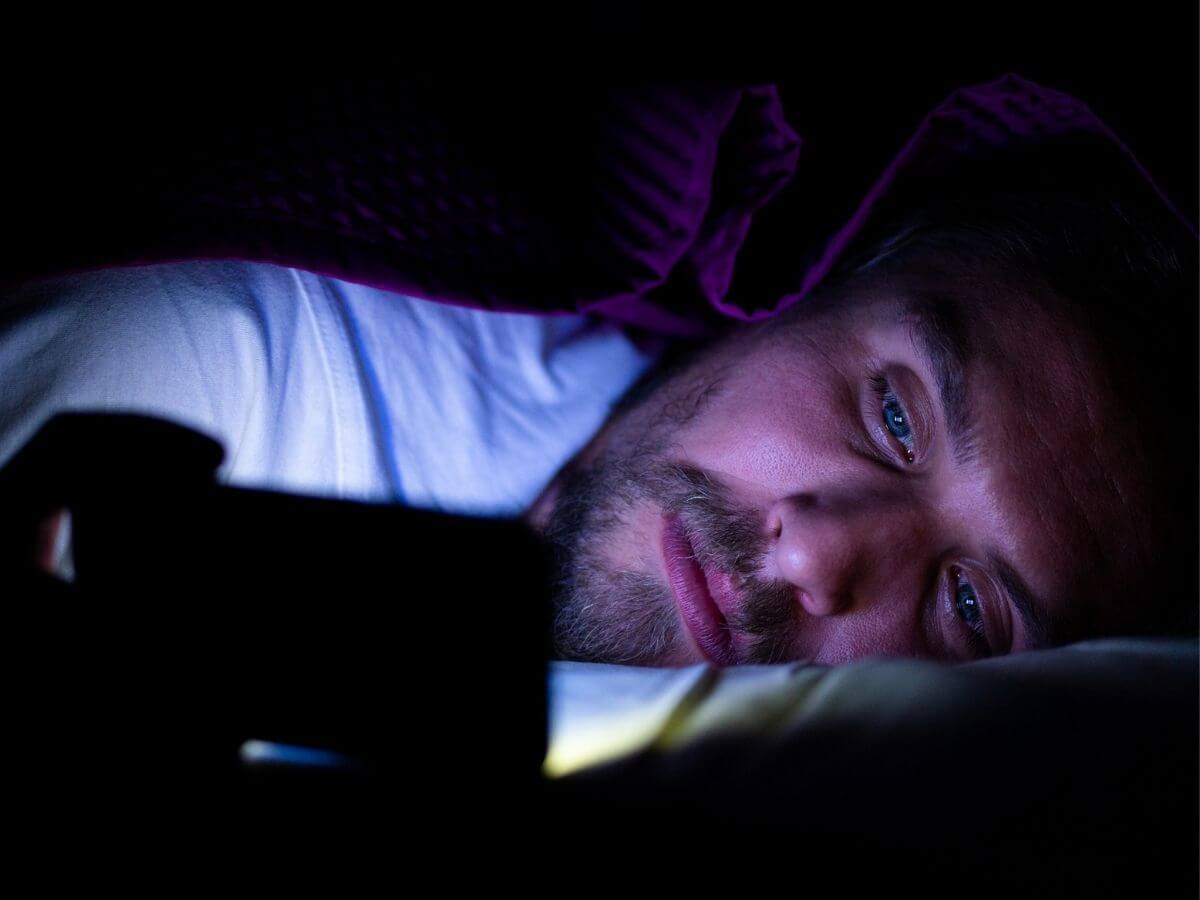Understanding Insomnia: Causes and Coping

There’s a reason that getting a good night’s sleep feels great. Your body needs approximately eight hours of sleep to heal and repair your cells, tissues, blood vessels, and organs after a day’s “wear and tear.”
If you aren’t able to fall asleep or stay asleep, or if you wake up earlier than you should, you may suffer from insomnia. Insomnia is a common sleep disorder that can impact your physical health and your overall quality of life. Fortunately, there are steps you can take to address it.
Symptoms of Insomnia
The most obvious symptoms of insomnia are trouble falling or staying asleep. But there are other indicators that you have this condition. You may feel tired or sleepy throughout the day, for example. It’s also common to be irritable or to feel anxious or depressed.
Insomnia can make it hard to focus on tasks or stay engaged in conversations and can negatively affect memory and recall of information, as well. People with this condition may also be more prone to making errors or being involved in accidents. And those who struggle with insomnia tend to worry about their inability to sleep, which only makes things worse.
All About the 4 Most Common Sleep Disorders
Many people feel they don’t get enough ZZZs, but assume seeking help means a sleep study or surgery. In this podcast episode, John White, MD, with Baptist Health Lexington’s Sleep Center, explains how sleep deprivation can disrupt lives and have harmful health effects in people of all ages. Listen now.
What Causes Insomnia?
Insomnia is a complex disorder that can have physical, psychological, and environmental causes. This can include:
- Health problems. Medical conditions like asthma, chronic pain, overactive thyroid, gastroesophageal reflux disease (GERD), diabetes, cancer, Alzheimer’s disease, Parkinson’s disease, sleep apnea, restless legs syndrome, and others can interfere with normal sleep.
- Medications. Drugs prescribed to treat the conditions above, as well as some over-the-counter medications, can make it harder to fall asleep or stay asleep. However, especially with prescription medications, it’s important to talk with your doctor if you think they’re causing or contributing to insomnia. You should not discontinue taking these medications without consulting your doctor.
- Alcohol, caffeine, and nicotine. Alcohol may help you fall asleep, but it prevents you from reaching the deeper, restorative levels of sleep. Caffeine and nicotine are stimulants that can make it hard to fall asleep and reduce the quality of your sleep.
- Mental health disorders. Anxiety, depression, post-traumatic stress disorder (PTSD), and other mental health conditions can make it difficult to get enough high-quality sleep.
- Shift work and cross-time-zone travel. Your body has what’s called circadian rhythm, which controls your sleep-wake cycle. Working shifts that get you up early in the morning or keep you up late at night, or changing work shifts, can affect the quality of your sleep. So can traveling across time zones regularly.
- Stress. Worries about finances, career, relationships, health issues, etc., that keep your mind active at night can make it difficult to fall asleep or return to sleep if you wake during the night.
- Harmful sleep habits. Watching TV, playing video games, or using a computer just before going to bed can make it hard to fall asleep. So can napping during the day, eating meals late in the evening, or having an irregular bedtime.
That’s a long list of causes! But all of them can be addressed to improve your sleep.
How Is Insomnia Diagnosed and Treated?
Everyone struggles to fall asleep or stay asleep now and then. But if you experience chronic insomnia, your doctor likely will talk with you about your sleep habits and perform a physical exam to help determine why you aren’t sleeping well.
In some cases, they may have you get a sleep study. That’s a procedure in which you spend a night in a sleep center as trained technicians monitor your brain waves, breathing patterns, body movements, and other sleep-related characteristics.
Once your doctor understands the origin of your sleep issues, they can prescribe several treatments to help you sleep better. These treatments may include:
- Treating underlying medical conditions and/or modifying the medications used to treat them
- Improving “sleep hygiene” factors like ensuring you go to bed at the same time each night, sleeping in a room that’s dark, quiet, and comfortably cool, limiting your use of electronics at night, restricting food and drink as bedtime approaches, etc.
- Light therapy using time outside before sunset or a lightbox to shift your sleep schedule as needed
- Intentional wakefulness, a paradoxical approach in which you get into bed and try to stay awake, thereby lessening your worry about falling asleep
- Sleep restriction, in which you limit the amount of time you spend in bed to make yourself more tired the next night and then gradually increase your time in bed
- Over-the-counter or prescription medications that can be used for a limited time to help you fall asleep and stay asleep
Better Sleep Is Achievable
Insomnia isn’t something you “just have to live with.” Your doctor can help you understand the causes of your sleep problems and develop a plan for minimizing or eliminating them.
If you suffer from chronic insomnia, make an appointment to see your Baptist Health physician. If you don’t have one, you can find a provider near you in our online directory.
Next Steps and Useful Resources
Find a Provider
Struggling to Give Up Your Smartphone at Night? 8 Ways to Ditch Screens.
How to Deal with Sleep Deprivation at Work
[PODCAST] All About the 4 Most Common Sleep Disorders



